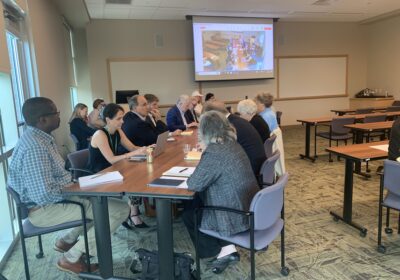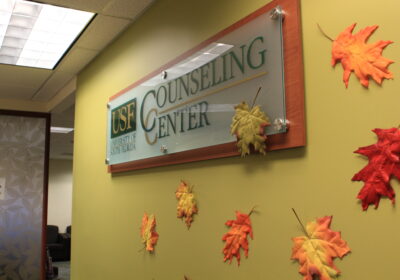Medicine treatment focuses on stories
Some doctors think storytelling could be a way to cope with the loss of a loved one.
Doctors are providing narrative medicine by referencing literature about the experiences of other patients for comfort, and USF’s Humanities Institute hosted its first panel event Tuesday to discuss the method.
The institute, a research group within the USF Department of Humanities and American Studies, plans to have more forums at the University, said Carolyn Ellis, professor of communications.
Associate professor of communication sciences and disorders Jacqueline Hinckley said if more attention would have been given to her brother-in-law, who suffered a stroke, then he wouldn’t have been in the hospital as long.
Hinckley said he died because the hospital staff neglected to treat his cognitive problem that caused behavioral change.
“I feel a hollow sadness, a sense of loss and abandonment,” said Hinckley, who specializes in stroke rehabilitation. “I know how much speech language pathologists have to offer an individual with cognitive communicative impairments, but that expertise and that care was not offered in the particular facility that (he) was at.”
Like Hinckley, four other guest speakers shared negative experiences that could have been better with this form of medicine.
Professor of communication Art Bochner said narrative medicine focuses on skills derived from interpretation techniques of literary critics.
“Narrative has become a rallying point,” Bochner said. “Human practice needs to become closer to human expectations of medicine by studying people, and narrative medicine might come closer to that.”
The Humanities Institute hopes to receive donations to further research in narrative medicine, said Silvio Gaggi, professor of humanities and chair of the Department of Humanities and American Studies.
The research committee will match any donation, Gaggi said.
“The humanities department entirely relies on contribution and anything you give will be matched …. You give $10 it will become $20,” he said.
Dr. Lodovico Balducci, the division chief of Senior Adult Oncology at Moffitt Cancer Center, said narrative medicine would improve patient treatment.
“Quality of life is so crucial when diagnosed with a terminal disease,” Balducci said.






